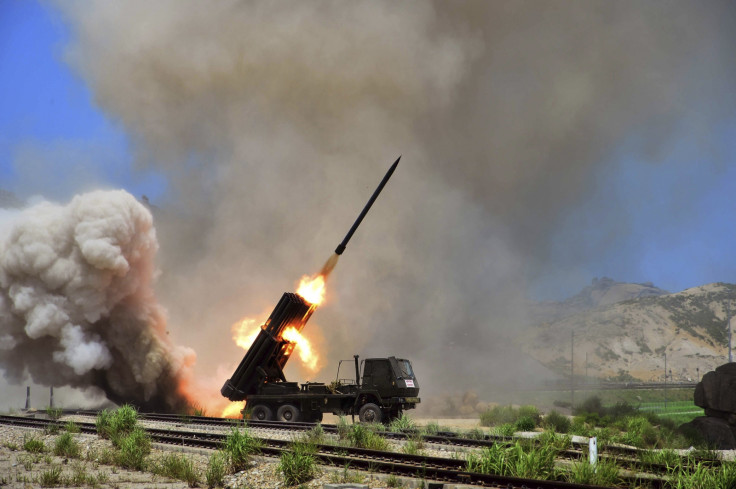North Korea launches ballistic missile to mark Kim II-Sung's birth anniversary

North Korea fired a ballistic missile in the early hours of 15 April to mark the birth anniversary of founding leader Kim Il-Sung, but the launch ended in failure. The attempt is thought to have involved Pyongyang's medium-range Musudan missile.
There were reports ahead of the anniversary that the North was preparing for the launch of a Musudan ballistic missile, which purportedly has a strike range of 3,000 to 4,000km and is capable of reaching the US bases in the Pacific island of Guam. Both American and South Korean officials confirmed the missile ended up in waters after deviating from its trajectory.
A statement from South Korea's Joint Chiefs of Staff (JCS) said: "The North appears to have attempted a missile test near its east coast early Friday morning, but it appears to have failed." Seoul officials are yet to confirm the exact type of missile that the North fired. South Korea's Yonhap news agency cited an unnamed government official as confirming it was a Musudan missile.
South Korean reports suggest that the secretive country may have deployed as many as 50 Musudan missiles targeting its adversaries.
Responding to the unsuccessful launch, a US State Department spokesperson said: "We have seen the reports. We are closely monitoring the situation. We call again on North Korea to refrain from actions and rhetoric that further raise tensions in the region and focus instead on taking concrete steps toward fulfilling its international commitments and obligations."
The failed missile launch coincides with the 104th birthday of Kim Il-Sung, the grandfather of current leader Kim Jong-un. The reclusive nation usually marks such occasions with lavish celebrations and military activities.
Tensions on the Korean peninsula have remained high in the past several months following Pyongyang's nuclear test in January and a long-range rocket launch in February. A defiant North was further angered by UN-engineered sanctions, which were imposed after those acts.
© Copyright IBTimes 2024. All rights reserved.






